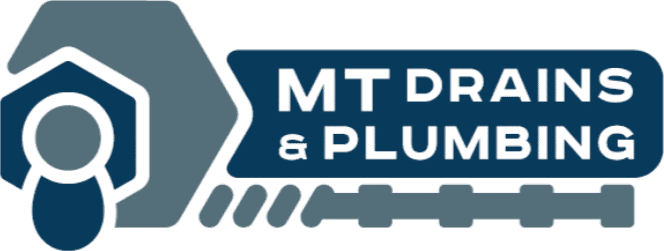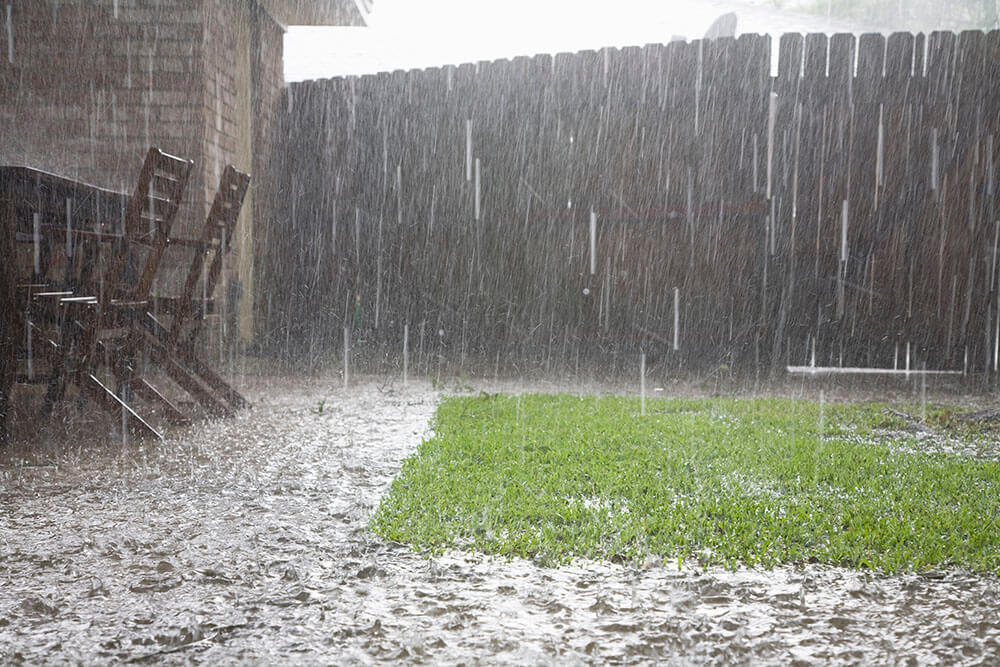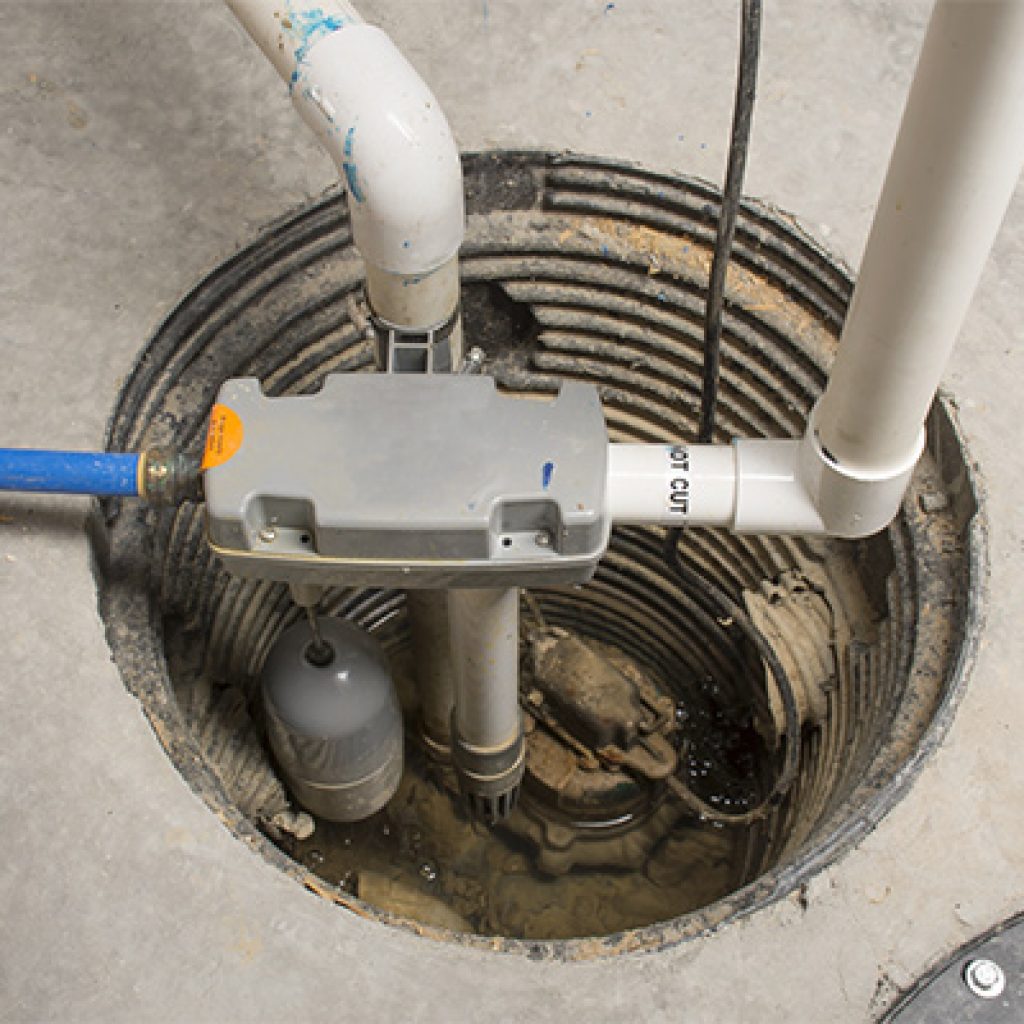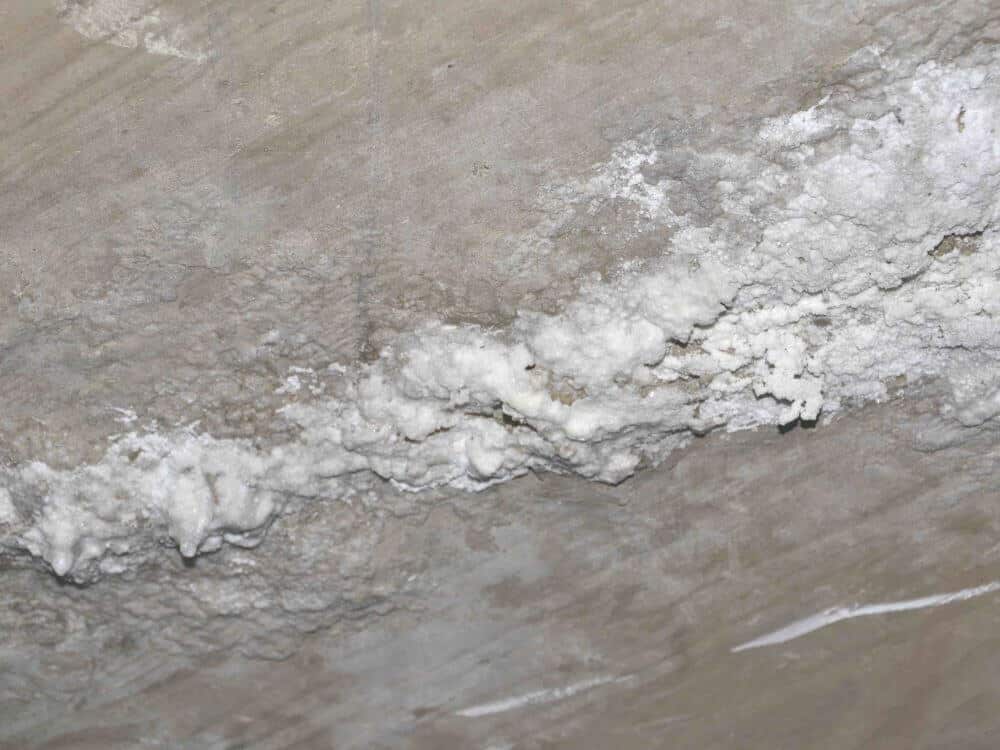Basements often leak during heavy rain because water builds up around your foundation and finds its way through cracks, weak spots, or poor drainage systems. This can lead to puddles, damp walls, or even mold growth if not fixed quickly.
In this article, we’ll explain the most common reasons basements leak after rain—and what you can do to prevent water damage in the future.
You’ve probably heard the saying, “When it rains, it pours.” And if your house isn’t waterproof, the water will find a way inside your home.
Quick Overview: Why Your Basement Leaks After Heavy Rain
🌧️ Hydrostatic pressure forces water through foundation walls and floors
🧱 Cracks in the foundation allow rainwater to seep inside
🌿 Clogged gutters or poor grading cause water to pool near your home
🪟 Window wells and basement windows can overflow or leak
🚫 Blocked or failing drainage systems lead to water backup
🛠️ Solutions include sealing cracks, improving grading, and installing weeping tile or sump pumps
Why Address Basement Water Leaks?
Basement water leaks can lead to numerous problems affecting your home structure and health. From musty odors to structural damage, the consequences can be significant. Addressing these leaks promptly is crucial to maintain a safe and habitable living environment. Here’s why you should prioritize fixing basement water leaks:
- Musty Odor and Health Hazards: Excess moisture creates a damp environment ideal for mold and mildew growth, leading to unpleasant odors and potential health issues.
- Unusable Space: A wet basement becomes unsuitable for storage or living space, leading to damage to belongings and rendering the area inhospitable for regular activities.
- Structural Damage: Water leakage can cause damage to walls and foundations, resulting in costly repairs and compromising the stability of your home.
By fixing leaks and implementing proper waterproofing measures, you can eliminate odors, reclaim space, protect your home’s structure, and prevent mold growth and associated health risks.
Common Causes of Basement Water Leaks in Heavy Rain
Understanding the causes of basement water leaks is essential for finding effective solutions. Here are some common culprits:
Hydrostatic Pressure
The concrete of your home’s foundation absorbs water like a sponge, and we all know that a sponge swells and becomes heavy when saturated with water. The same thing happens to the concrete of your home’s foundation.
Lateral Pressure
Window Well Issue
A window well issue is a common cause of basement seepage. Though windows allow natural light and fresh air in the basement, they can also collect water.
Existing Damages with the Foundation
Cove Joint
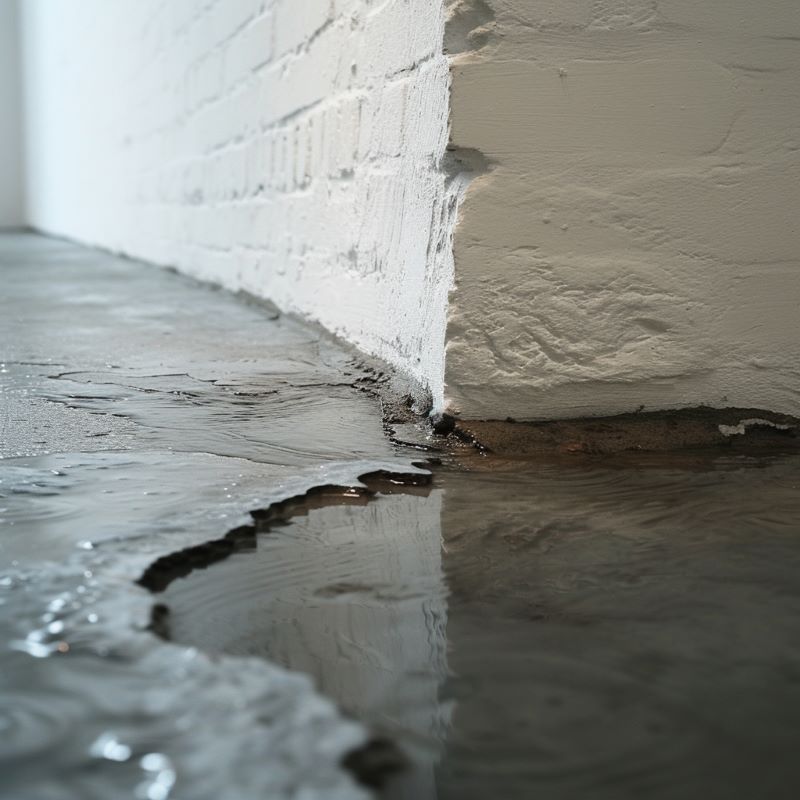
Clogged Gutters and Downspout Issues
Basement Leak Statistics & Data
💧 98% of basements in North America will experience some type of water damage in their lifetime.
Source: National Association of Waterproofing and Structural Repair Contractors🌧️ Heavy rain and poor drainage are responsible for over 60% of residential basement leaks.
Source: U.S. Federal Emergency Management Agency (FEMA)🧱 Foundation cracks are the most common entry point for groundwater—affecting up to 38% of leak-prone homes.
Source: Home Inspectors Association of Ontario🦠 Mold growth can begin within 24–48 hours of water exposure in a basement.
Source: Centers for Disease Control and Prevention (CDC)💸 The average cost to repair a water-damaged basement ranges from $3,000 to $10,000, depending on severity.
Source: HomeAdvisor
How to Fix and Prevent Basement Water Leakage after Rain
- Identifying the Source of Leak: Thoroughly inspect the basement for cracks, damaged window wells, or clogged gutters to pinpoint the source of the leak.
- Improving Grading and Drainage: Ensure proper grading around your home to divert water away from the foundation, preventing pooling and leakage.
- Cleaning Gutters and Downspouts: Regularly clean gutters and downspouts to maintain proper water flow and prevent overflow.
- Sealing Window Wells: Use high-quality waterproof sealants to seal window wells and prevent water infiltration.
- Installing Moisture Barriers: Apply moisture barriers to basement walls to prevent water penetration and moisture buildup.
- Foundation Repair: Address any foundation cracks promptly to prevent water seepage into the basement.
- Extending Downspouts: Add extensions to downspouts to divert water away from the foundation and basement walls.
Actionable Solutions To Prevent Water Seepage
- Invest in Professional Waterproofing: Consider hiring experienced professionals to assess your basement’s waterproofing needs and implement effective solutions tailored to your home’s unique challenges.
- Install Sump Pumps and Dehumidifiers: Invest in sump pump installation and dehumidifiers to manage water accumulation and moisture levels in your basement, preventing mold growth and structural damage.
- Regular Gutter Maintenance: Schedule regular gutter cleanings to ensure proper water drainage away from your home’s foundation, reducing the risk of basement leaks.
- Seal Window Wells: Properly seal window wells to prevent water infiltration through window frames, safeguarding your basement from leaks during heavy rainfall.
- Landscape for Proper Drainage: Create slopes away from your home’s foundation to divert water runoff and alleviate pressure on basement walls, reducing the risk of leaks.
